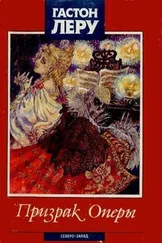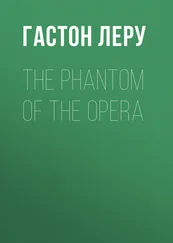Гастон Леру - The Double Life
Здесь есть возможность читать онлайн «Гастон Леру - The Double Life» — ознакомительный отрывок электронной книги совершенно бесплатно, а после прочтения отрывка купить полную версию. В некоторых случаях можно слушать аудио, скачать через торрент в формате fb2 и присутствует краткое содержание. Жанр: literature_20, Классический детектив, foreign_detective, на английском языке. Описание произведения, (предисловие) а так же отзывы посетителей доступны на портале библиотеки ЛибКат.
- Название:The Double Life
- Автор:
- Жанр:
- Год:неизвестен
- ISBN:нет данных
- Рейтинг книги:4 / 5. Голосов: 1
-
Избранное:Добавить в избранное
- Отзывы:
-
Ваша оценка:
- 80
- 1
- 2
- 3
- 4
- 5
The Double Life: краткое содержание, описание и аннотация
Предлагаем к чтению аннотацию, описание, краткое содержание или предисловие (зависит от того, что написал сам автор книги «The Double Life»). Если вы не нашли необходимую информацию о книге — напишите в комментариях, мы постараемся отыскать её.
The Double Life — читать онлайн ознакомительный отрывок
Ниже представлен текст книги, разбитый по страницам. Система сохранения места последней прочитанной страницы, позволяет с удобством читать онлайн бесплатно книгу «The Double Life», без необходимости каждый раз заново искать на чём Вы остановились. Поставьте закладку, и сможете в любой момент перейти на страницу, на которой закончили чтение.
Интервал:
Закладка:
“You need not laugh, gentlemen. It is impossible to be more serious. Our actual transformation, which is the final word in science, is in full accord with the theory of reincarnation. What is transformation except the idea that living things transform themselves, progressing one into another? Nature presents herself to us under the aspect of a spark, elaborately perfecting without ceasing to create, to attain an ideal which will be the millennium. Whatever Nature does for the body she does for the soul. It can be proved, for I have studied this side a great deal, and it is the original of all sciences.
Monsieur Adolphe was not understood by the company, a fact of which he was inwardly proud. He liked to feel a superiority of intellect, and often he would raise the conversation above the level of his audience just to gratify his vanity. He touched on many points which only need be referred to lightly here in order to convince skeptics that the extraordinary history of Théophraste is founded on a most scientific basis.
“The transmigration of souls was taught in India,” said Adolphe; “the cradle of the genus human, then in Egypt, then in Greece. They chanted its mysteries in the name of Orpheus. Pythagoras, who continued the teaching, did not admit with the philosophers on the banks of the Ganges that the soul traveled over the cycle of all animal existence. He made it come back, for example, into a pig.”
“There are some men,” said Madame Beulie, “who still have the souls of pigs.”
“Without doubt,” said Adolphe, smiling; “but what Pythagoras says is that we must not conclude from that, that pigs have the souls of men. Plato also adopts this doctrine. It is the first which gave in the Phidon the proof that souls do not exile themselves forever and that they come back to animate bodies anew.”
“Oh, if we could only get proof of that it would be nothing for me to die,” declared old Mlle. Tabouret, who had a mortal terror of dying.
“Here are the proofs,” continued Adolphe. “They are two in number. One is taken from the general law of Nature, the other from human nature. First, Nature is governed by the laws of contraries, and from that we see that while death succeeds life, all would end by being absorbed in death, and Nature would one day come to an end like Endymion. Therefore I say that we exist after death.
“Secondly, if after consulting the general laws of Nature we turn to our own minds, we will find there the same dogma attested by the fact of resemblance. ‘To learn,’ said Plato, ‘is nothing but to recollect. Since our souls learn, they must have a resemblance. What does it recollect except to have lived, and to have lived in another body? Why can we not believe that in leaving the body while it is animate at this time it can animate several others in succession?’ I quote Plato literally,” remarked Adolphe.
Then he passed from Plato to a modern authority. “Charles Fournier has said: ‘Where is the old man who has not truly wished to be born again, and to use in another life the experience he has acquired in this?’ To pretend that that desire ought not to be realized is to admit that God can deceive us. We ought then to recognize that we have lived previous to being what we are, and that several other lives await us. All these lives, to the number of eight hundred and ten, are distributed between five periods and embrace a span of eighty-one thousand years. Allan Hardai reckons that the soul returns to another body after two or three thousand years unless we die a violent death. Then it is quite possible one can be reincarnated after two hundred years.”
Adolphe had by this time drawn all around him and became the center of attraction by his entertaining remarks. Théophraste had sat open-eyed, listening intently, and upon hearing the last remark thought “That is well. They may have hung me; so if I did not die that way, they may have got rid of me by some other death more in keeping with my station in life. Nevertheless,” he thought, “if all these people here could only realize that they had a prince of the royal blood among them, they would be very much astonished, and be filled with respect. But no, he will still be Théophraste Longuet, manufacturer of rubber stamps.”
Champagne was brought, and soon the air rang merrily with general chatter and the explosion of corks. It was then that Marceline turned around to Théophraste and begged him to sing the song which he was accustomed to sing on the anniversary of their marriage. He had sung it the day of their wedding, and on account of its beauty they had adopted it as their wedding song. It was Lissette de Baranger.
However, to the consternation of Marceline and all the guests, instead of singing the song, he rose, threw his napkin on the table and said to her in that strange voice which they heard at the Conciergerie:
“As thou wishest, Marie Antoinette, I can refuse thee nothing.”
“Oh, my God,” cried Marceline. “Hear what he called me in that strange voice!”
The guests were obviously uncomfortable, and did not know what to make of his peculiar behavior. The song was a vulgar song of the Regency period, and certainly not for such a gathering as was at this party. He sang it with the old French air:
Tou joli belle mimiere—
Tou joli, moulin.
CHAPTER V
Théophraste Remembers Himself
THEOPHRASTE sang the song in loud, strident tones, his eyes sparkling, glass in hand. It was with indescribable surprise that the company received it, and despite the richness of the rhyme, the couplet was followed by no applause. An awkward silence followed, and all the ladies looked to Marceline for an explanation.
What was it that Marceline could explain? Adolphe himself looked at Théophraste in surprise; but Théophraste, as if possessed with the devil, continued with the second couplet of the drinking song. When he had finished, he sat down, looked around with satisfaction, and said to Marceline, “What do you think of that, Marie Antoinette?”
In the midst of a death-like silence preserved by all, Marceline asked tremblingly, “Why do you call me Marie Antoinette?”
“Because you are the most beautiful of all!” cried Théophraste. “I appeal to Madame la Marechale de Bouilleurs, who has taste. I appeal to all of you. And there is not one who, by the signet of the Pope, will contradict me, neither the Eros Picards, nor the Bourbons, nor the Burgundias, nor the Provincials, nor the Poet St. Jack, nor Gatelard, nor Bras-de-Fer, nor Guente Noir, not even Bal-a-voir.”
M. Théophraste had on his right old Mlle. Tabouret, and he pinched her knee as he looked at Marceline, which nearly made that austere person faint. No one dared to move; for the fiery look of Théophraste frightened the whole company. He leaned amorously towards Mlle. Tabouret, and said to her, staring at Marceline, who was by this time weeping: “Let us see, Mlle. Tabouret, am I not right? To whom can I compare her? Is it La Belle Laitere, or La Petite Minion; or even La Blanche of the bowling alley; or La Belle Helene, who kept the Harp Tavern?”
Turning towards Adolphe, he said with great energy, “Come you, Va-de-Bon Cour, tell me your opinion. Look at Marie Antoinette a little while. By the fatted calf, she puts them all in the shade: Jeannette, the flower girl of the Royal Palace; Marie Leroy and the female Solomon, the beauty of the Temple; Jeanne Bonnefoy, who kept the café of the Port Marie; Manon de Versailles, the poultry girl-none of them approach her in beauty.”
He then leapt with one bound upon the table, and breaking the dishes, cups and plates into a thousand pieces, held his glass over his head and shouted, “Let us drink to the Queen of the Nymphs, Marie Antoinette.”
Читать дальшеИнтервал:
Закладка:
Похожие книги на «The Double Life»
Представляем Вашему вниманию похожие книги на «The Double Life» списком для выбора. Мы отобрали схожую по названию и смыслу литературу в надежде предоставить читателям больше вариантов отыскать новые, интересные, ещё непрочитанные произведения.
Обсуждение, отзывы о книге «The Double Life» и просто собственные мнения читателей. Оставьте ваши комментарии, напишите, что Вы думаете о произведении, его смысле или главных героях. Укажите что конкретно понравилось, а что нет, и почему Вы так считаете.
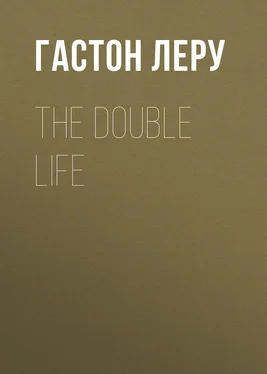
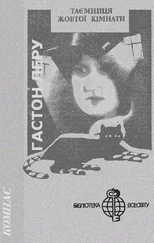


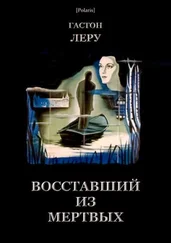
![Гастон Леру - Невеста Солнца [Роман]](/books/415626/gaston-leru-nevesta-solnca-roman-thumb.webp)
